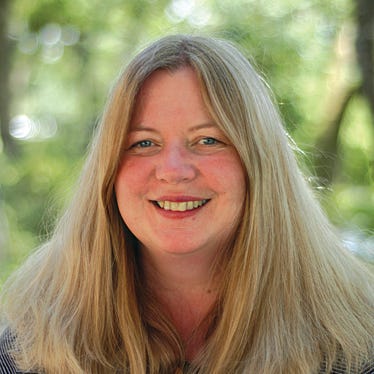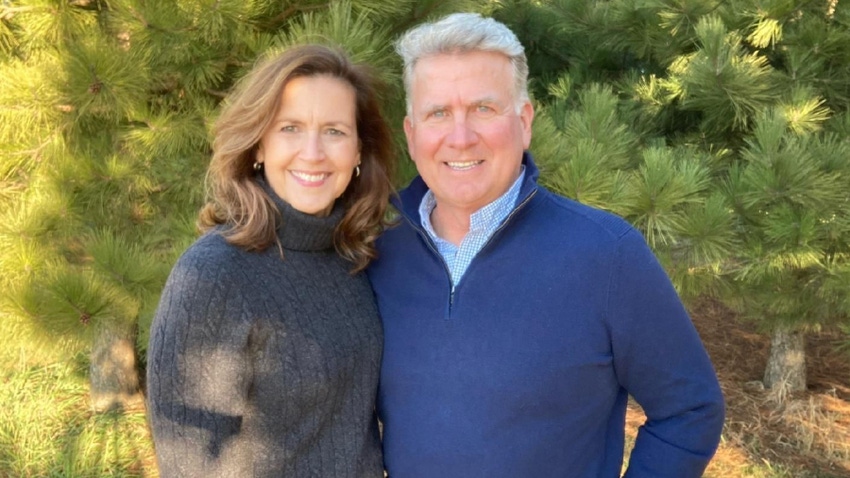
Brian McCulloh grew up on a diversified livestock farm in Clinton County, Iowa. “We had a small cow herd, fed cattle, and raised hogs farrow to finish,” he says.
As a boy, McCulloh was a 4-H and FFA member and loved showing livestock at the fairs. He was passionate about the livestock industry. “I’ve always had a very keen interest in cattle,” he says.
A 1981 graduate of Iowa State University, McCulloh was a member of the Iowa State collegiate livestock judging team and went on to serve as livestock judging team assistant coach with Gary Minish at Virginia Tech in 1981-82. He then joined the American Angus Association as director of junior activities.
After 18 months, Minish, McCulloh’s mentor, facilitated a meeting between Dan Borgen and McCulloh in 1984. The two hit it off, formed a partnership and started Woodhill Farms near Viroqua in Vernon County, Wis. McCulloh and his wife, Lori, moved to the farm and have been there ever since.
McCulloh and Borgen’s vision for Woodhill Farms was crafted right from the beginning. They started with 35 registered Angus cows and created a herd that consistently excelled at calving ease, feedlot performance and carcass merit, without compromising maternal function.
In the 1980s, McCulloh says, the Angus breed had been on a single-trait quest of increasing frame size and growth.
“We believed that focusing on a combination of traits made more sense,” he says.
At this time, expected progeny differences were just becoming available, and Woodhill Farms was convinced that when used properly, EPDs would aid in the selection process. They incorporated this technology into their decision-making and selection goals, adopting and embracing the use of EPDs right from the beginning.
“What is unique about our breeding program? We believe in balanced breeding. We didn’t chase any single trait. We believe we should avoid selecting outliers for a single trait such as growth because outliers likely bring undesirable traits into the mix,” McCulloh explains. “A belief in breeding with balance beefs up success.”
This philosophy developed four decades ago is Woodhill Farms’ philosophy today.
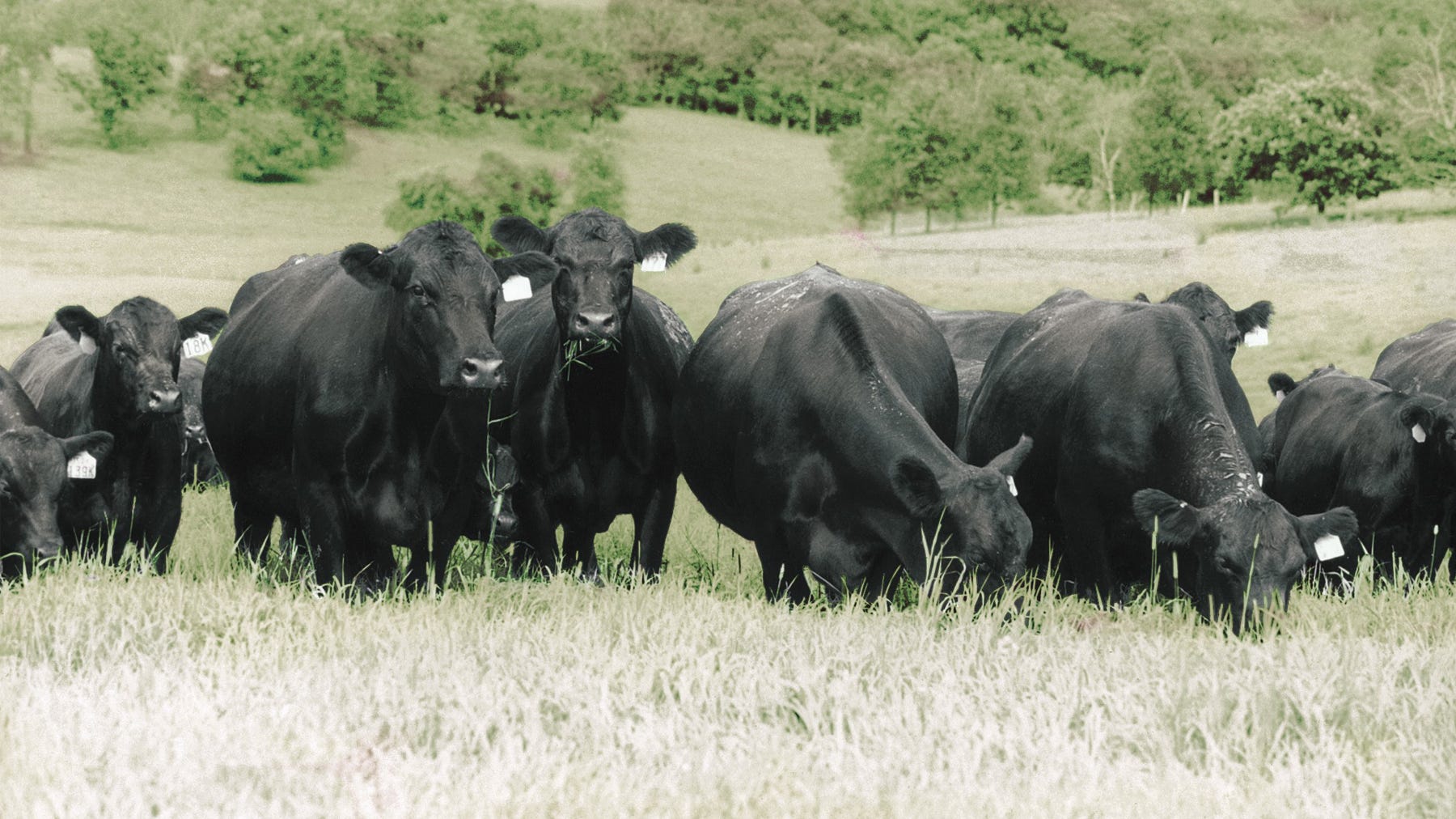
BALANCED BREEDING: Woodhill Farms was started in 1984 by Brian McCulloh and his partner, Dan Borgen, with 35 registered Angus cows. The herd of registered Angus has grown to 300 cows, 120 replacement heifers and 160 bulls sold annually at their spring bull sale.
The herd started with foundation females purchased from Graham Angus in Georgia. The maternal legacy of the herd was further boosted by the purchase of GT Miss Traveler 58 from Dr. John Andersen, Middleton. McCulloh made a herd visit to Andersen’s GT Angus Farm in the summer of 1988 and negotiated the purchase. She was nursing a bull calf at that time, GT Maximum, the all-time record-selling bull at the Platteville Bull Test.
GT Miss Traveler 58 produced 37 sons during her lifetime, including Woodhill Valor, Woodhill Triple Threat, Woodhill Resolution, Woodhill Scotchman and Woodhill Delta. At one point, she had more sons leased or owned by bull studs than any other Angus cow in breed history. By 2020, nearly half the females in the Woodhill herd were descendants of GT Miss Traveler 58.
Woodhill Farms’ Success
One of the keys to Woodhill Farms’ success has been providing bulls that possess the traits that most affect the profitability of commercial and registered cow herds, McCulloh says.
“Woodhill’s recipe for success includes dependable calving ease direct, top 30% weaning, yearling, marbling and ribeye area in tandem with a maternally efficient cow herd that can consistently breed back annually,” he explains.
“Commercial producers do not want problematic, high-maintenance cattle, because many cow herd owners in the Midwest own cows as a byproduct of land ownership,” he says. “We have customers who have another job off the farm and/or other farming enterprises that contribute a higher percentage of their income.”
McCulloh understands that the volume of performance data and information available can be confusing to commercial cattle producers.
“The average commercial cattleman has less than 50 cows and does not have the time to research this technology,” he says. “That’s where we come in. Customers rely on us to make the decisions on the traits to measure, record and evaluate in our breeding program, so they can confidently purchase a bull or female.”
McCulloh is also aware that many commercial cattle producers are “long on tasks and short on labor, and consequently, utilizing cattle that have been selected for the proper balance of traits means they can be confident when they are purchasing cattle that can take care of themselves.
“In the world we live today, we tend to want everything instantly, and many want to believe that genomics is the silver bullet. It is best to stick with a balanced breeding approach that incorporates all the modern breeding tools, and then add a healthy dose of humility and commonsense,” he says.
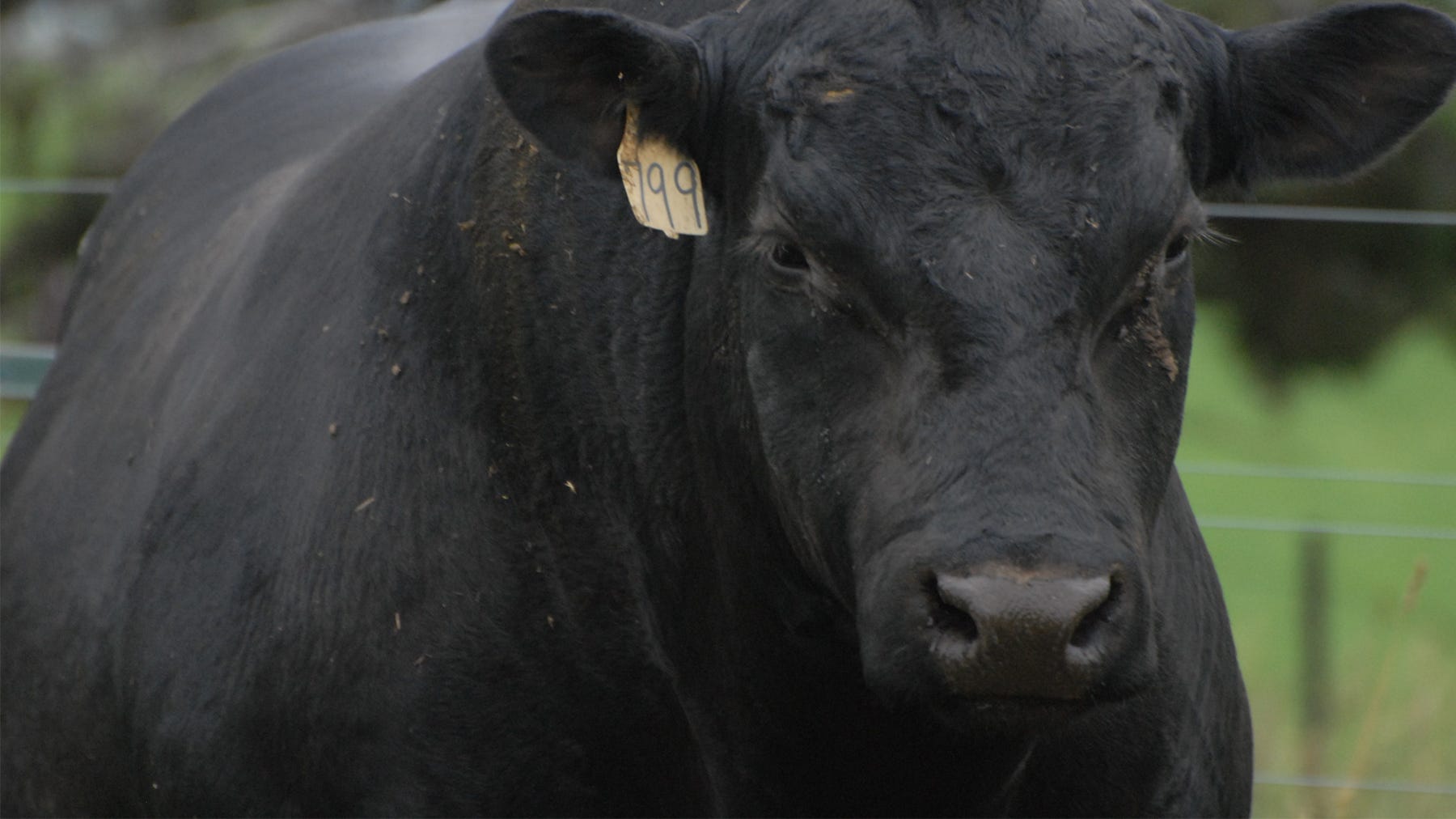
WOODHILL FARMS BULLS: One of the keys to Woodhill Farms’ success has been providing bulls that possess the traits that most affect the profitability of commercial and registered cow herds.
Climbing the ladder
McCulloh says he knows firsthand that it is difficult to get started in farming today.
“It was tough when we started farming in 1984 during the farm crisis,” he says. “If you picked up a newspaper, there were auctions everywhere. But we were young, and we weren’t focused on the negatives.
“We’ve had a lot of success over the years, but it doesn’t happen overnight. We built a cow herd, sold seedstock, and we crawled our way up the ladder. We had our first bull sale in 1989. This year will mark the 35th annual sale. However, it took 14 years and three generations of cows before I had the confidence to have a female sale in 1998.”
At that sale held at Woodhill Farms, McCulloh sold a cow for $200,000.
“She was a daughter of GT Miss Traveler 58,” he says. “She was an 8-year-old cow with five sons in bull studs.”
Three days later, McCulloh traveled to Bon View Farms in Canova, S.D., to reinvest in another cow family for Woodhill and purchased a bull calf, BonView New Design 878, and his mother. McCulloh then sold an interest in 878 to ABS Global immediately after the sale, and the bull went on to become one of the all-time domestic top-selling beef bulls in ABS history.
McCulloh says he understands that they have been fortunate. “I’m grateful to have worked with some talented people on the farm over the past 40 years,” he says. He believes Woodhill��’s success came about due to a combination of hard work and being at the right place at the right time.
The herd of registered Angus has grown to include 280 cows, 140 replacement heifers and 160 bulls that are sold annually at the spring bull sale.
During the past 40 years, Woodhill Farms sold or leased 41 bulls to bull studs. They have sold Angus semen and embryos all over the world.
Beef authority
Over the years, McCulloh has judged numerous Angus shows, including the National Angus Show in Louisville, Ky.; National Junior Angus Show in Kansas City, Mo., Springfield, Mo., and Tulsa, Okla.; National Western Stock Show in Denver; Fort Worth Stock Show in Fort Worth, Texas; Royal Melbourne Show in Australia; and several state fair shows. He also has been a beef official for the North American International Livestock Exposition Collegiate Livestock Judging Contest multiple times.
He has spoken at seminars throughout the U.S. and internationally, including the ABS Global Regional Beef Meeting in Argentina; Quality Beef Seminar in Turkey; National Pedigree Livestock Association annual meeting in Sacramento, Calif.; Beef Improvement Federation annual meeting in Denver; Beef Improvement Association seminars in Australia and New Zealand; Corn Belt Cow-Calf Conference in Ottumwa, Iowa; Nebraska Beef Industry Scholars Summit in Lincoln, Neb.; and Iowa State University Beef Genetics Symposium in Ames, Iowa.
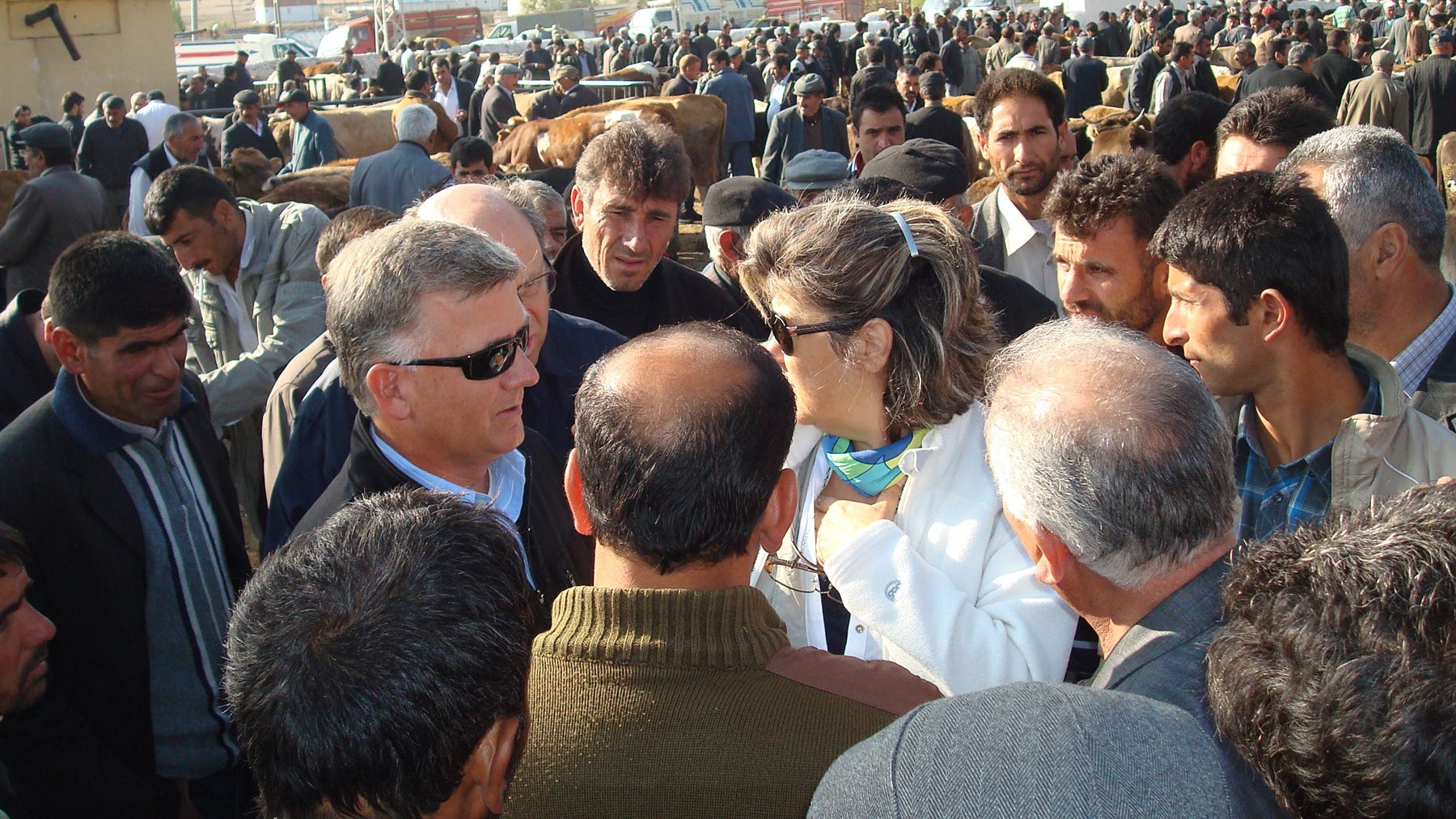
INTERNATIONAL TRIPS: Brian McCulloh (center) was invited to speak at a Quality Beef Seminar in Kars, Turkey, in 2013.
McCulloh has held a variety of leadership positions as well. He serves on the Tainter Creek Farmer-led Watershed Council and is active in his church and community.
In the past, he served on a number of local, state and national boards and committees, including the Iowa State University Animal Science External Advisory Curriculum Committee, Wisconsin Angus board of directors, Wisconsin Cattlemen’s Board, Grow Wisconsin Livestock Industry Initiative, Growing Wisconsin Agricultural Task Force, and Wisconsin Veterinary Diagnostic Laboratory Board, where he was president in 2012. He also was a 4-H beef project leader for 12 years.
On a national level, he served on the American Angus Association board of directors, Certified Angus Beef board, and Beef Improvement Federation board, where he served as president in 2010.
During his career, McCulloh has been honored with several awards, including the Beef Improvement Federation Seedstock Producer Roll of Excellence Award in 2021 and the BIF Continuing Service Award in 2012. He was named an Angus Heritage Foundation Inductee in 2020, Wisconsin Cattleman of the Year in 2013 and Certified Angus Beef Producer of the Year in 2000.
While McCulloh appreciates the accolades he’s received and the experiences he’s had while developing a successful farm business, he says he is most proud of his family.
“Lori and I have raised three wonderful children, and we have a great life here,” he says. “Our children are happily married, have great careers, are raising their own families and carving their own paths. We are very proud of them.”
The next chapter
Last summer, the McCullohs scheduled a dispersal sale at the farm for September. However, in July they sold the entire herd to one entity from northwestern Illinois. All 300 bred females and 120 open heifers left in October.
“We have scheduled our final bull sale for April 13 at the farm,” McCulloh says, adding that 160 bulls will be sold. “It is time for someone else in the industry to carry the torch forward for the Woodhill herd. I am assisting the new cattle manager with the herd transition.
“I will remain involved in the beef industry. I can’t just walk away. We love the farm and the Viroqua community — this is our home.
“I’m looking forward to further expanding the Woodhill genetic influence within the Angus breed and the commercial cattle industry in another capacity.”
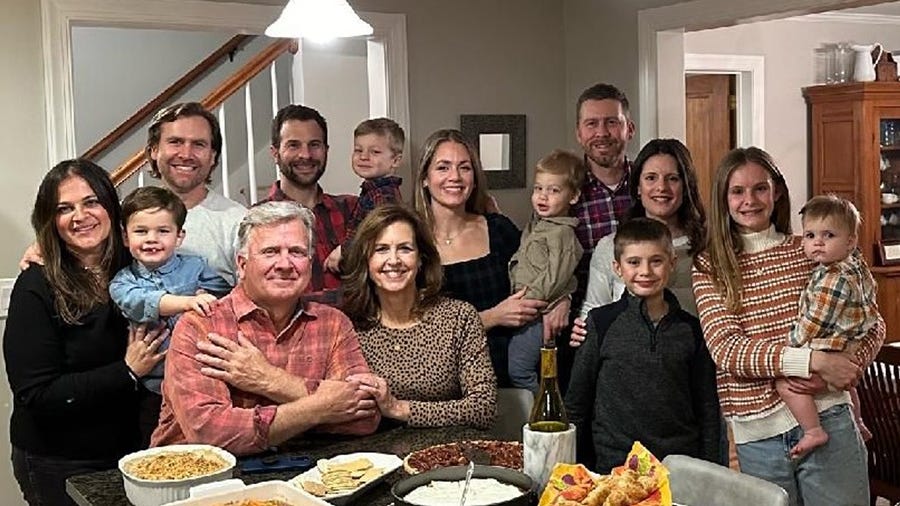
FAMILY GATHERING: The McCulloh family enjoys gathering together at the farm. Behind Brian and Lori are their children and spouses (from left) Carolyn and Matt, Vasili and Allison, and Ryan and Jenni. Grandchildren are (from left) Wells, Beau, Max, Evan, Clara and Maxine.
Master at a glance
Brian McCulloh
Age: 64
Location: Viroqua, Vernon County
Farming enterprises: Registered Angus cattle
Size of farm: 1,030 owned acres; 580 registered Angus cows, heifers and bulls
Years farming: 40
Family: Wife Lori, sons Ryan (Jenni) and Matt (Carolyn), daughter Allison (Vasili Karas), and grandchildren Clara, Evan, Wells, Maxine, Beau and Max
Read more about:
Master AgriculturistsAbout the Author(s)
You May Also Like


